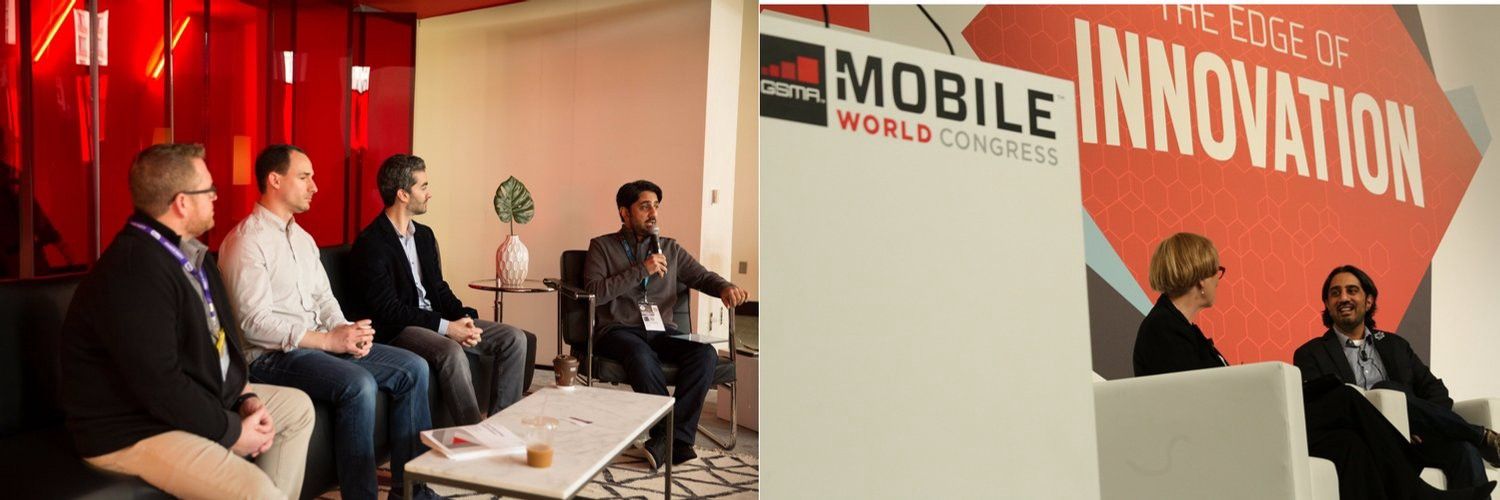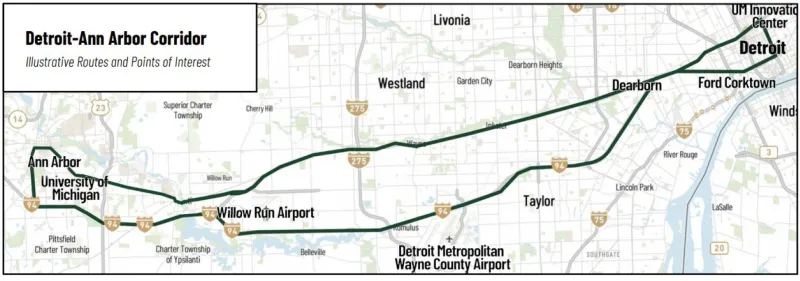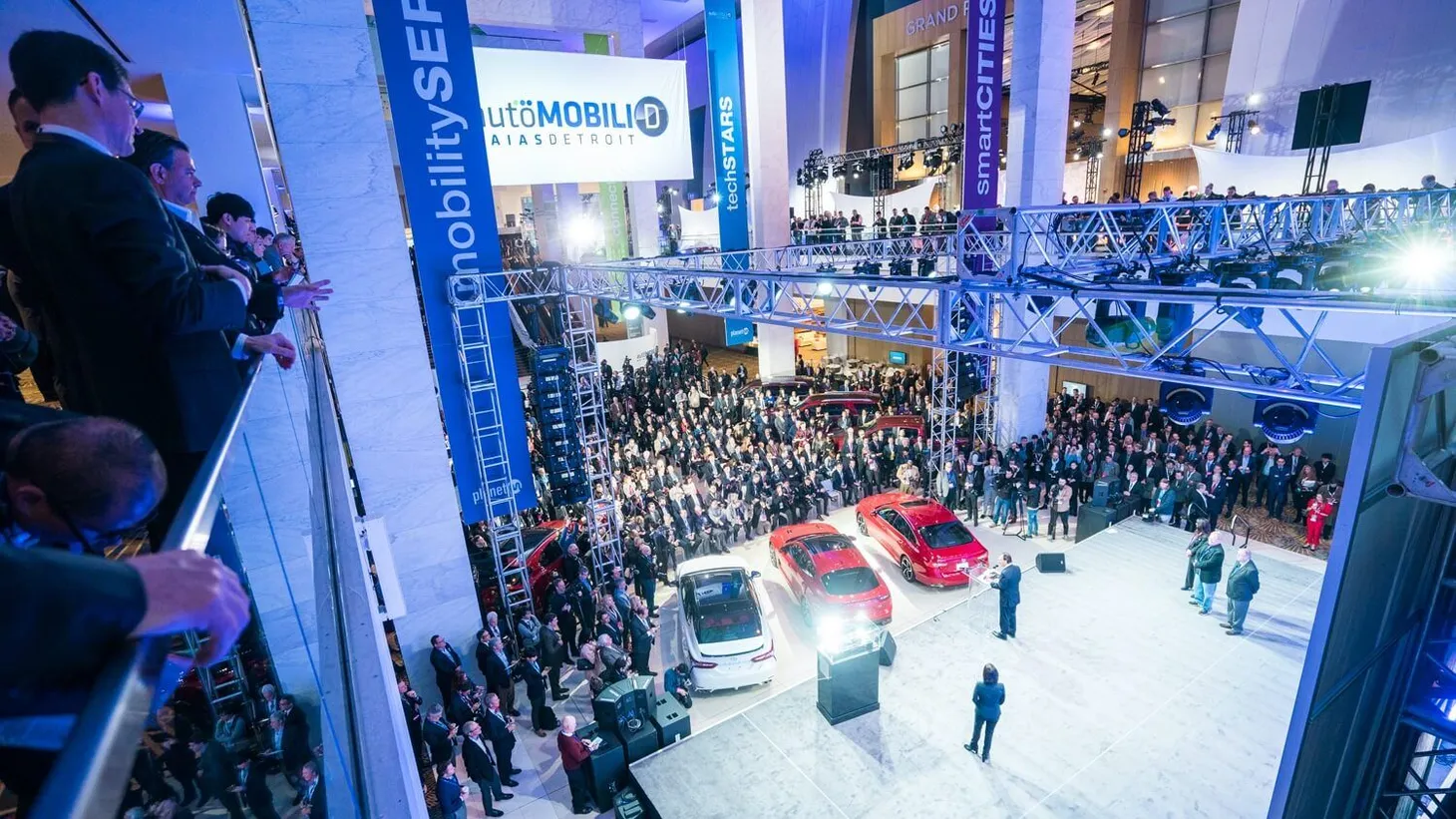Techstars Mobility Mentor Zaki Fasihuddin Shares Tips for how Corporations Can Work with Startups
Techstars Mobility Accelerator mentor Zaki Fasihuddin joins Volvo Cars as VP of Digital. Zaki has been an active corporate mentor in the 2015, 2016, and 2017 Techstars Mobility Accelerator programs.

Techstars Mobility Accelerator mentor Zaki Fasihuddin joins Volvo Cars as VP of Digital. Zaki has been an active corporate mentor in the 2015, 2016, and 2017 Techstars Mobility Accelerator programs. In this post, I interview Zaki who shares some tips for ways corporations and startups can work together.
The entire transportation industry is going through a historic change. Automotive companies are shifting from bending metal to bending bits. Soon they will be offering software and services to complement manufactured metal. Driving this massive transformation is the need for the large corporations to become more innovative and nimble like startups.
These companies are looking to partner and work with emerging technology startups instead of being merely disrupted by them. Innovation teams are being formed at large corporations to build processes around structured engagement with innovative startups.
At the Techstars Mobility Accelerator program, we have 10 corporation innovation partners for 2017. You can read more about these new corporate partners in this post. These include Ford, Verizon, Honda, next47 (the independent investment arm of Siemens), Bosch, InMotion (powered by Jaguar Land Rover), AAA, Dana, Munich Re, and Michelin. These corporations are not only learning from startups but are offering mentorship and support to help these startups thrive in the changing transportation industry.
As we kick off the third Techstars Mobility Accelerator program(and 109th class to go through Techstars, wow!), I’m excited to interview one of our mentors, Zaki Fasihuddin who has worked at innovation teams at both McDonald’s (a 2015 and 2016 Techstars Mobility corporate partner) and now Volvo.
Mentors are where the magic happens at Techstars, and we have an all star list of Mobility mentors. It’s even more amazing when mentors come back year after year to support the program. It’s equally impressive when those mentors change roles at large corporations but still find ways to be engaged and to get their company involved. At Techstars we have a saying “#Techstars4Life” and it’s powerful to see this in action.
Zaki first started as a Techstars Mobility mentor when he was running the McDonald’s Digital Hub in Silicon Valley. He mentored many mobility startups, helping to support internal connections, paid pilots, and relationships throughout the industry. He offered unique corporate insight because of his previous startup experience being a co-founder, early team member, and investor in several software companies
In June of 2017, Zaki gave me a call after transitioning to his new role at Volvo’s Mountain View office. “How can I #GiveFirst and support the 2017 class?” I smiled knowing that two of our incoming companies (SEEVA and EcoG part of our 2017 Techstars Mobility class) were already asking if we had any mentors from Volvo. That’s the power of the Techstars network!
Here are some tips from Zaki for both corporations and startups on ways to work together.
Why is it important for corporations to work with early stage startups?
Zaki: There are several reasons why corporations should consider working with early-stage startups that include:
- Range of experimentation of new ideas: For startups, there is no such thing as “we don’t do that here…,” or, “…that conflicts with our current business model…” Startups tend to be trailblazers into new unproven market spaces and have the ability to experiment, fail fast and try again, often in rapid iterative cycles.
- Speed: Startups can change direction on a dime. By partnering with startups, corporations can see signals or proof points faster on testing of hypotheses. Startups don’t need permission to act and are less constrained when they do by building scrappy solutions that are fit for purpose. At Techstars they call this #DoMoreFaster and two Techstars founders wrote a whole book on it.
- Cost effective learning: Taking on additional internal overhead cost to research technology and new business models in-house is not always feasible. That’s why programs like Techstars—that offer a turnkey accelerator program with a methodology of proven success—are so attractive. They can be run with minimal cost that can show a huge boost in experimentation, research, and overall accelerated learning in co-creation partnerships.
- Outside perspective: Fresh lenses can offer different approaches to problem-solving or frame opportunities differently. For example, a startup may “mash-up” technologies in a new way or apply a new business model that hasn’t been tried before. By their nature, startups are empowered to challenge industry norms by thinking differently.
- Talent: Being involved in the building of a startup was one of the most challenging experiences of my career. Entrepreneurship is sometimes thought to be glamorous, but it is actually the opposite. It’s more like the movie Groundhog Day where every day is a grind for survival mixed in with some healthy paranoia while the main thing that powers you is an illogical belief. It is the ultimate trial by fire that tests your fortitude on so many levels. Now if one can learn how to properly apply those skills and passion inside a corporation, they can make a sizable impact. Startups can not only serve as a talent pipeline but can also help inculcate a culture of healthy paranoia so corporations don’t rest on their laurels
You’ve now seen many corporations engage with startups. What do you think is the single biggest lesson corporations can implement to work with startups successfully?
Zaki: Be consistent, dedicate resources, and follow through. You need to have a dedicated team that is truly engaged and committed, who understands startups and has a path to go from idea to proof of concept to pilot and potentially even production. This means investing the right amount of time with a startup and the founders and jointly sharpening the problem statement, the scope of engagement, and the outcomes that you will be trying to solve in the collaboration. Companies that have invested the time to do this come out with far better results. It all comes down to engagement and commitment.
What would be your top 1 or 2 tips for a startup to work with a corporation?
Zaki: Be focused and specific about what you are trying to achieve. Don’t view the project as a one-and-done. Agree on a project that is feasible to achieve and doesn’t have a lot of dependencies to deploy. Don’t be smitten by working with a name brand, instead have a clear understanding of why you are seeking a particular partner and what tangible value it will create for your company.
For startups, time is not on your side. It is easy to go off on a tangent by making some bad choices which can cost your company more in the long run. We all need to learn to do more faster together.
What excites you about the Mobility space and in particular the opportunity for Detroit?
Zaki: Coming from a different industry, the exponential pace of change and innovation in the Mobility space is mind boggling. Places like Dubai, Singapore, and China are creating favorable conditions by fast tracking new regulations and offering seed investment to attract global mobility startups. Detroit has more to offer entrepreneurs when it comes to world class research-based educational institutions, a massive transportation-focused private sector with knowledge workers, an affordable cost of living and a public sector intent on re-inventing the city. Detroit has an opportunity to become the global destination of choice for mobility entrepreneurs.
The Techstars Mobility Accelerator program has 10 corporation innovation partners including Ford, Verizon, Honda, next47 (the independent investment arm of Siemens), Bosch, InMotion (powered by Jaguar Land Rover), AAA, Dana, Munich Re, and Michelin. We have over 200 mentors from another 100+ different corporations from around the globe. If you’d like to learn more about becoming involved in Techstars Mobility, please contact me.
Ted Serbinski Newsletter
Join the newsletter to receive the latest updates in your inbox.


